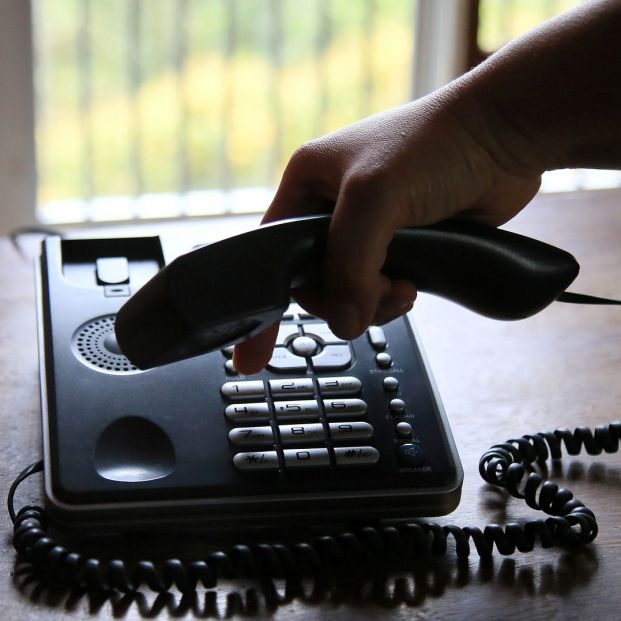The general secretary of FACUA-Consumers in Action (@FACUA), Ruben Sanchezappeared this Thursday before the Congressional Commission on Social Rights and Consumer Affairs to present the main demands of the association regarding the project of Law on Customer Service Services.
“The fixation of a Compensation framework for consumers who do not receive answers to their complaints and incidences on problems related to billing is one of the most relevant issues that the law must reflect,” Sánchez explained.
FACUA claims that These compensations apply if there is no response within five days or two hours if it is an incident that involves an unjustified cut of supply. As for its amount, it must represent double the amount irregularly invoiced, with a minimum of 50 euros, which would be added to the amount that will have to be returned to the user or corrected in their invoice.
In his speech, the general secretary of FACUA also pointed out the need to improve the law to classify the acceptance of contracts made as a result of unsolicited commercial calls as a consumer offense. “Only if there are economic sanctions against companies—mainly energy and telecommunications—that profit from these illegal practices, telephone spam can be eradicated”Sánchez said.
David vs. Goliath
“Consumers have a serious problem to confront large companies that commit abuses. And the thing is that when we complain, the most we can hope for in the vast majority of cases is that they return the money illegally charged, that they comply with the conditions of the contract or that they restore a service that was also illegally charged,” said the Facua spokesperson.
“Consumers have to waste a lot of time making complaints to these companies.”. Calls and emails that sometimes we have to repeat over and over again until we get a positive response. And it stays at that, at most. A positive response and perhaps an apology. But they do not compensate us for the damage caused,” he continues.
“They do not compensate us for the time they have made us lose and that discomfort for having appropriated money that was ours, because they were not fulfilling what they promised or because they had even decided to leave us without electricity, without a telephone or without an internet connection without there being any reason to justify it, for example, because we had refused to pay a debt that was not real.
“That’s why, We need a customer service law that not only establishes ways, forms and response times. Not only do we need companies to be obliged to give us attention through different means of communication, with a person assisting us from the beginning of the call and not a machine, since they do it without making us wait weeks, but also to do it only in a few days or even a few hours if it is a problem that affects the continuity of the service,” he adds.

Need for inconvenience to be compensated
“Consumers also need a law that establishes a framework of economic compensation for the inconvenience caused as a result of poor customer service, as a result of failure to comply with those obligations. What good is it for us to regulate these ways, forms and deadlines for response if, in the event of non-compliance, we have no right to anything?” he asks.
“We have been waiting for many legislatures for a law to be passed that regulates customer service. We have had threats in the legislatures of José Luis Rodríguez Zapatero, Mariano Rajoy and in the previous legislature. For various reasons, this law has never been approved.”
“It is a an extraordinarily necessary rule to prevent companies from ignoring their customers’ complaints. But, I insist, we do not want just any customer service law. We want a law in accordance with the current reality, a law that establishes quality obligations, with response times in accordance with the characteristics of the companies and services that are regulated in it and, above all, a law that establishes a framework of economic compensation for consumers who suffer non-compliance with these obligations and response times,” he defends.

Right to be served by a person and not a machine
“Look, we assume that there are issues that we consider more than necessary and that are not going to be approved. LConsumers have the right to be served by a person and not a machine.. We have had that right since 2007, when the General Law for the Defense of Consumers and Users established that telephone support services must guarantee “direct personal attention,” asks Sánchez.
“The novelty that the text that you are going to debate and vote on incorporates is that the maximum waiting time is three minutes in 95% of calls. Three minutes going through a menu of options until the company has no choice but to talk to a human being. Three eternal minutes. And if after those three minutes we do not speak to anyone, companies will be able to argue that the call is part of the 5% in which they do not have the obligation for a human to answer us,” he explains.
“Besides, Banking, energy and telecommunications companies will be able to continue applying their sectoral regulations. on a preferential basis if it regulates customer service, even if it is more lax than the Customer Service Law. We do not understand that the text of the future norm raises this instead of imposing that the principle of application of pro-consumer law prevails, whereby in the existence of regulatory disparity the most favorable to consumers must be applied.

Demands that the customer service law be approved
“These are two of the many shortcomings of a standard that, in any case, must be approved to increase levels of consumer protection. But, yes, must be approved guaranteeing the incorporation of some of the amendments that different parliamentary groups have proposed. Because approving this law without them would represent a valuable lost opportunity for Spain to take real steps forward in the defense of user rights,” he claims.
He has also highlighted several of the key demands for FACUA. “On the one hand, users must be financially compensated automatically if companies do not make their withdrawal requests effective of services, if they do not address your claims for the collection of non-contracted services within five business days or if they do not immediately respond to queries and claims related to the suspension or unjustified cuts of basic services of general interest. Compensation that must be double the amount of the service billed irregularly and at least 50 euros, regardless of whether that amount is returned.”

15 days, too long to resolve queries
“On the other hand, the period of fifteen days for the resolution of queries, claims and incidents related to billing or improper collections proposed by the text sent by the Council of Ministers to Congress seems disproportionate to us. This period must be reduced considerably, to a maximum of five days, as stated in the text of the project in its current wording.. Because five days is more than enough time for a large company to respond to a claim, and it goes without saying if it is simply a query. A deadline that, if not met, must result in compensation of 50 euros to the consumer.”
And remember that it is a regulation approved by the Government of José María Aznar In relation to the electricity sector, where this period of five business days is established, with a compensation of 30 euros in cases where the companies do not comply. I am referring to Royal Decree 1955/2000, of December 1.
“So we hope that this regulation is extended to all companies affected by the Customer Service Law.. And that the amount of compensation be raised to 50 euros, which is basically an update of those 30 euros approved in 2000 with the rise in the CPI.”

Non-commercial telephone service
“Another issue that seems of special importance to us is that the customer service telephone number is different from the commercial information telephone number. And that the calls in which the user raises some type of claim or incident are not used to sell more products or services,” Sánchez said.
“As for the spam telephone, the measures implemented a few months ago by the Ministry of Digital Transformation have been of little use. After telecommunications companies were forced to block calls made from mobile numbers, now the traffic of unsolicited commercial calls occurs with fixed numbers.
“In fact, a FACUA survey in which more than 7,000 consumers participated shows that four in ten are now receiving more spam calls than before the implementation of that measure. What we consumers need is for companies to be ordered to block any unsolicited commercial call, regardless of the type of number from which it is made,” he adds.

Penalty for registrations contracted with spam calls
“Business calls should only be allowed through a specific number, something that requires a modification of the National Numbering Plan. Numbering that should not entail additional costs for the consumer if they call back, nor for the companies that hire them.”
“And beyond these blocking protocols, it is also essential that regulatory changes be implemented that define how consumption violation the fact that companies (electricity, telephone, etc.) admit high of clients made in conversations resulting from spam calls. Something that would allow these companies to be sanctioned.
“Something that would also have to be complemented with a framework of economic compensation for these users, which could be formalized by forcing companies to inform the client of this right in the welcome email when processing the registration, clarifying that if the contract was formalized in a call not made by them or expressly requested, they have the right to financial compensation and also to cancel the contract and return to your previous company without assuming any costs“he concludes.


